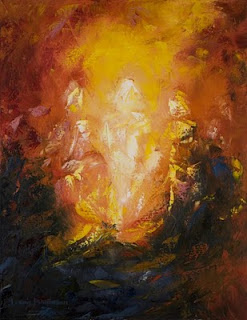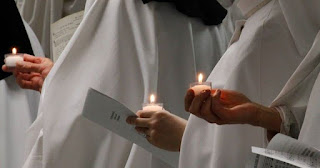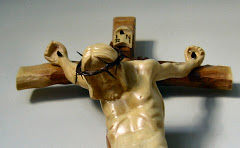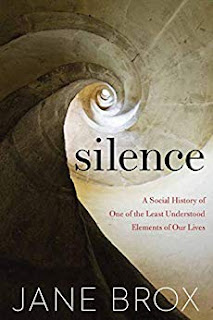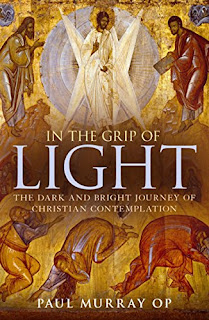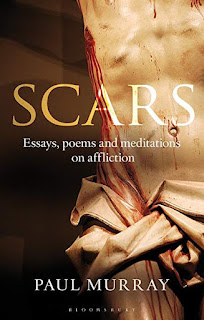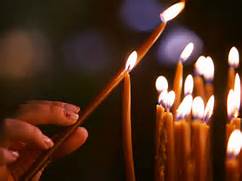 We all have stories about times when we were somehow labeled or called a name which demeaned us. It happens in all kinds of situations -- not always out of maliciousness. Once when I was a patient having some experimental surgery to control seizures a doctor identified me to a resident physician as, "Dr Feinstein's TLE" -- that is, "Dr Feinstein's Temporal Lobe epileptic". It was hurtful and exacerbated my own difficulty in seeing myself as someone apart from my illness. Similarly, a friend grew up with an older brother who regularly called her "stupid." Unfortunately, she internalized the label and thought of herself as "stupid." Throughout her youth and even into adulthood she was hampered by an inability to see herself for who she actually was -- a truly brilliant and gifted young woman. The inability or refusal to see a person as person, to conflate them with labels, with some illness, failing, condition, ethnicity, etc., this very specific form of blindness is at the root so much of the sin that distorts our world; it is at the root of so much of the violence and cruelty we hear about every day. It is a form of killing which in some ways destroys (dehumanizes) both the one labelled and the one doing the labeling.
We all have stories about times when we were somehow labeled or called a name which demeaned us. It happens in all kinds of situations -- not always out of maliciousness. Once when I was a patient having some experimental surgery to control seizures a doctor identified me to a resident physician as, "Dr Feinstein's TLE" -- that is, "Dr Feinstein's Temporal Lobe epileptic". It was hurtful and exacerbated my own difficulty in seeing myself as someone apart from my illness. Similarly, a friend grew up with an older brother who regularly called her "stupid." Unfortunately, she internalized the label and thought of herself as "stupid." Throughout her youth and even into adulthood she was hampered by an inability to see herself for who she actually was -- a truly brilliant and gifted young woman. The inability or refusal to see a person as person, to conflate them with labels, with some illness, failing, condition, ethnicity, etc., this very specific form of blindness is at the root so much of the sin that distorts our world; it is at the root of so much of the violence and cruelty we hear about every day. It is a form of killing which in some ways destroys (dehumanizes) both the one labelled and the one doing the labeling.
 In Matthew's gospel text from last Friday we are given the example of this same form of blindness and dehumanization; in this case though the situation is worsened considerably by anger. Matt recounts a story of someone blinded in this way who can only see a person as "fool" or "imbecile" or the impossible-to-translate "Raqa!" It can lead one to even greater blindness and actual murder. Matthew does not believe the Law and Gospel oppose one another; he understands that the Gospel radicalizes the Law and empowers its fulfillment. Just a few verses before Friday's pericope Matt has Jesus affirming that he does not come to abolish the Law but rather to fulfill it! But what Matthew also knows is a God whose justice is not in opposition to Divine mercy; rather God fulfills justice in mercy. Mercy is the radicalization of justice; in fact, it is the paradoxically powerful way God does justice! God always says "Yes!" to the person as person even as God says "no!" to the sin, or illness, or brokenness. In other words, in this case, what human beings blindly and even sinfully conflate, God separates and makes right. His mercy is powerful because it always affirms the person as person. Over time, allowing God to love us in this way separates us from our sin, illness, brokenness, etc., changes our hearts and allows us to see ourselves and others with new eyes.
In Matthew's gospel text from last Friday we are given the example of this same form of blindness and dehumanization; in this case though the situation is worsened considerably by anger. Matt recounts a story of someone blinded in this way who can only see a person as "fool" or "imbecile" or the impossible-to-translate "Raqa!" It can lead one to even greater blindness and actual murder. Matthew does not believe the Law and Gospel oppose one another; he understands that the Gospel radicalizes the Law and empowers its fulfillment. Just a few verses before Friday's pericope Matt has Jesus affirming that he does not come to abolish the Law but rather to fulfill it! But what Matthew also knows is a God whose justice is not in opposition to Divine mercy; rather God fulfills justice in mercy. Mercy is the radicalization of justice; in fact, it is the paradoxically powerful way God does justice! God always says "Yes!" to the person as person even as God says "no!" to the sin, or illness, or brokenness. In other words, in this case, what human beings blindly and even sinfully conflate, God separates and makes right. His mercy is powerful because it always affirms the person as person. Over time, allowing God to love us in this way separates us from our sin, illness, brokenness, etc., changes our hearts and allows us to see ourselves and others with new eyes.
 As God has mercy on us, as God says "Yes" to us and "No" to our sin, so must we learn to do to everyone we meet. Only in this way can we heal our world of the bigotry, resentment, etc. and the anger that inflames these even whipping them into a firestorm that overtakes our world in acts of outright murder like we saw Thursday in New Zealand. We must learn to stop conflating qualities with the person themselves. We must do this for ourselves and for all others: after all, I have Temporal Lobe Epilepsy; I AM Laurel, beloved daughter of God! That person practices Judaism or Islam or Christianity (etc.); even more fundamentally they ARE (Personal Names) beloved children of God! We each and all sin, sometimes grievously ---but as persons we each remain beloved daughters and sons of God --- and we are so only through a Divine mercy that does justice in our world!
As God has mercy on us, as God says "Yes" to us and "No" to our sin, so must we learn to do to everyone we meet. Only in this way can we heal our world of the bigotry, resentment, etc. and the anger that inflames these even whipping them into a firestorm that overtakes our world in acts of outright murder like we saw Thursday in New Zealand. We must learn to stop conflating qualities with the person themselves. We must do this for ourselves and for all others: after all, I have Temporal Lobe Epilepsy; I AM Laurel, beloved daughter of God! That person practices Judaism or Islam or Christianity (etc.); even more fundamentally they ARE (Personal Names) beloved children of God! We each and all sin, sometimes grievously ---but as persons we each remain beloved daughters and sons of God --- and we are so only through a Divine mercy that does justice in our world!The responsorial psalm on Friday reminded us again and again, "If you, O Lord, mark iniquities, Lord who can stand?" It is the mercy of God that says yes to us as persons that allows us to stand tall in our own deepest truth even as it moves us away from our sin and brokenness; it is that same mercy mediated through us that will allow others to stand tall in their own truth even as it defeats the anger, resentment, bigotry and simple thoughtlessness that so demean, dehumanize and kill.

